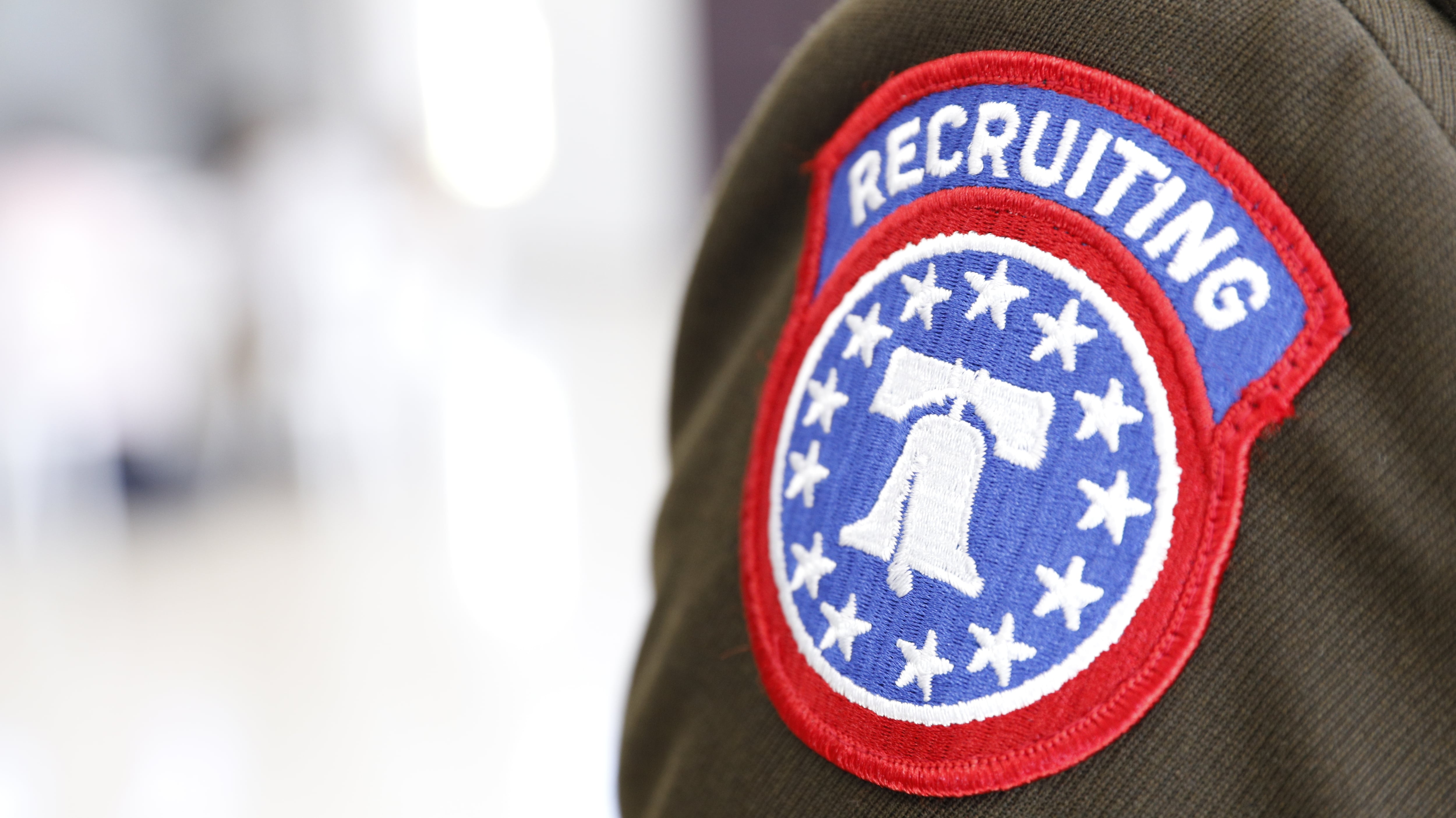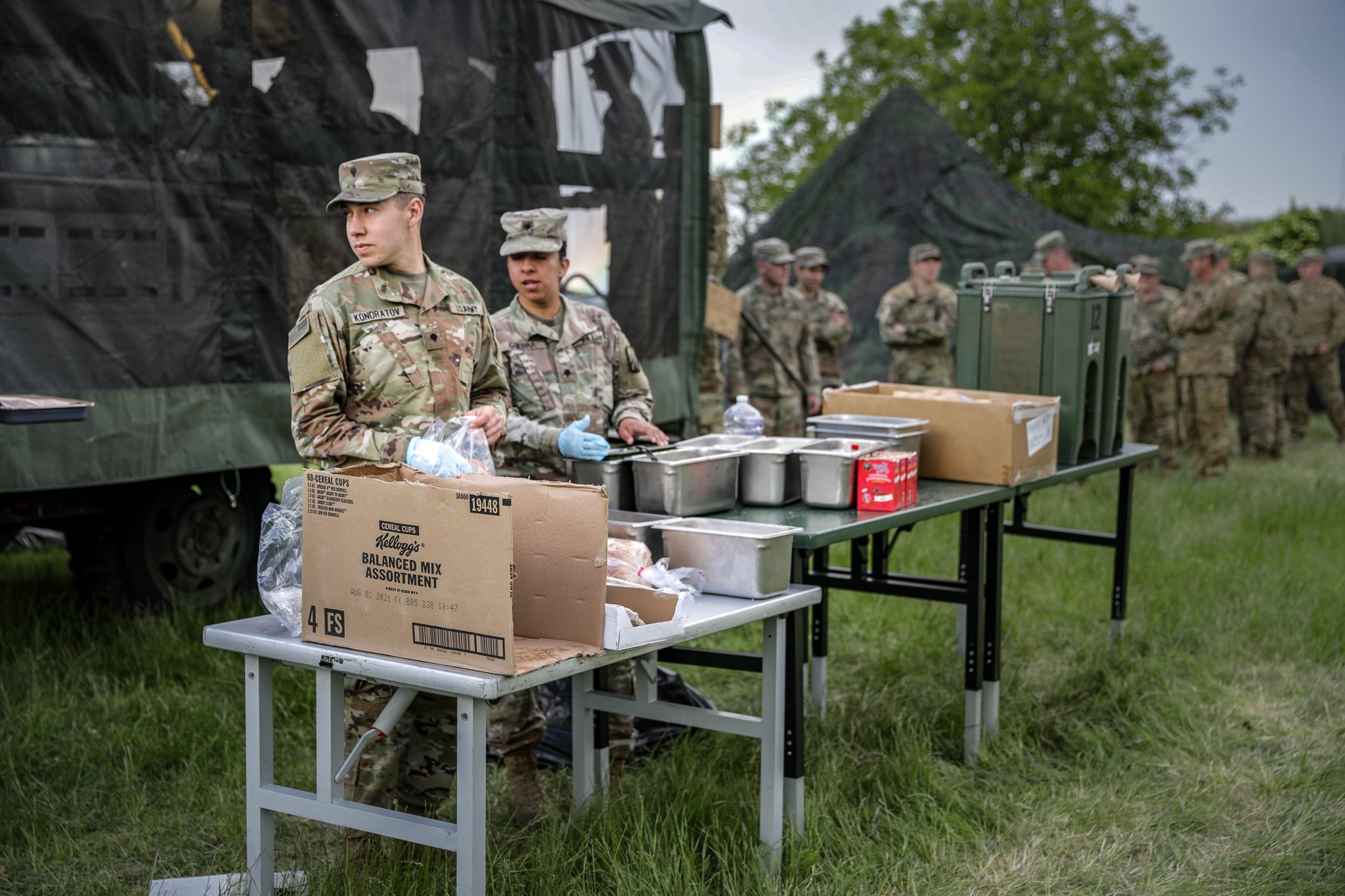Editor’s note: This story was updated with a statement from an Army spokesperson at 2:00 p.m. EDT on July 3, 2023.
The Army’s internal auditors will review whether officials at five installations correctly docked meal allowances from soldiers during field training events this year, according to an internal announcement reviewed by Army Times.
At stake is roughly $15 per field day for a typical enlisted soldier, and troops interviewed by Army Times were furious that the service is “counting pennies,” as one characterized the audits.
The audits, conducted by the Army Audit Agency, will check basic allowance for subsistence — or BAS — deductions from May and June at Fort Campbell, Kentucky; Fort Cavazos, Texas; Fort Drum, New York; Fort Carson, Colorado; and Joint Base Lewis-McChord, Washington.
BAS, according to the Defense Finance and Accounting Service and Army regulations, is a monthly payment between $311 and $905 based on rank and availability of cooking facilities, intended to “partially offset” the costs of service members’ meals. Although virtually all troops beyond those in initial training receive BAS, many barracks-dwelling members must pay equivalent mandatory meal card charges.
Under the same regulations, though, units must deduct soldiers’ BAS on a day-for-day basis when they attend field exercises and eat “Government-provided” meals. The deductions add up, and can tear a hole in a soldier’s budget amid widespread food insecurity in the ranks.
Bryce Dubee, a spokesperson for the Army, said the audits are a “follow-up...to previous audits conducted on meal collection for field training” that indicated significant “non-compliance” with the deduction policy.
Although Dubee said the Army’s new HR platform, the Integrated Personnel and Pay System-Army, did not inspire the audit, the platform was highlighted in the internal announcement. The new program changed long-standing processes for BAS deductions.
According to the regulation governing Army audits, such efforts identify areas where improvements can be made, make recommendations to solve problems, and identify “potential monetary benefits” in cases of financial loss. The internal auditors often review complex or new pay-related programs. Last year, the agency found an experimental recruiting performance bonus program may have overpaid recruiters by nearly $500,000.
RELATED

Before the new HR platform debuted, the deductions would occur after lower-level commanders submitted field exercise rosters to finance offices. According to an internal control checklist, division-level units are typically responsible for ensuring their units impose BAS collections in line with DoD directives and Army policy.
On social media forums devoted to the Army, soldiers discussed the pending audits and openly wondered if they’d see missed deductions retroactively applied as debt on their paystubs. In an email to Army Times, Dubee said the audits are focused on “process and compliance” rather than clawing back money from soldiers.

One former infantry NCO who spoke with Army Times, requesting anonymity because he isn’t authorized to speak to media, suggested responsibility for any mistakes should fall on administrative personnel rather than individual soldiers.
But the NCO, now a cyber warfare soldier, also questioned the practice of deducting the meal allowance during field training altogether.
Army regulations governing the allowance explicitly state BAS “is not intended to offset the costs of meals for family members.” But many military families try — and fail — to qualify for food assistance programs, and even the Pentagon’s new “basic needs allowance” for hungry families is not working as intended.
“If you’re an E4 and married, that’s an extra [$450] a month,” the cyber NCO said. “You want to tell the guy, ‘Hey, I know you’re in the field away from your family, and we fed you MREs, but we’re gonna completely wreck your budget this month and you just have to suffer.’”
Another soldier, an NCO stationed in Georgia, acknowledged the allowance is technically only intended for the soldier, but argued that “BAS is a vital part of [most service members’] monthly budget, especially with the current high inflation rates.”
In a text message to Army Times, he argued the service “should not be doing BAS deductions for field time…rations should be included in the training budget.”
Currently, it’s not clear whether the audits will expand to other installations should this round uncover widespread deduction failures. Dubee said the auditors “will make this determination.”
Georgina DiNardo is an editorial fellow for Military Times and Defense News and a recent graduate of American University, specializing in journalism, psychology, and photography in Washington, D.C.
Davis Winkie covers the Army for Military Times. He studied history at Vanderbilt and UNC-Chapel Hill, and served five years in the Army Guard. His investigations earned the Society of Professional Journalists' 2023 Sunshine Award and consecutive Military Reporters and Editors honors, among others. Davis was also a 2022 Livingston Awards finalist.





